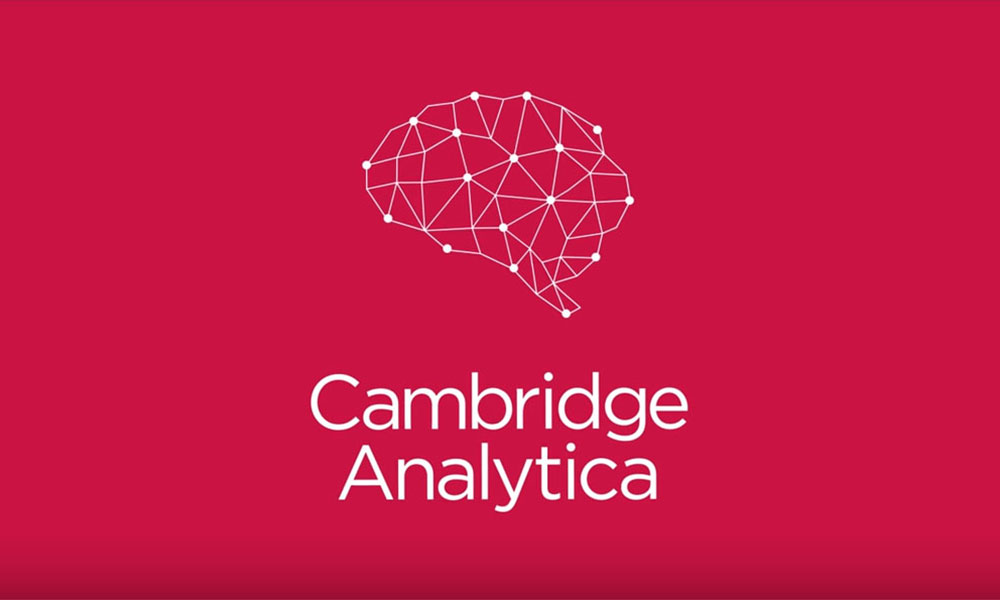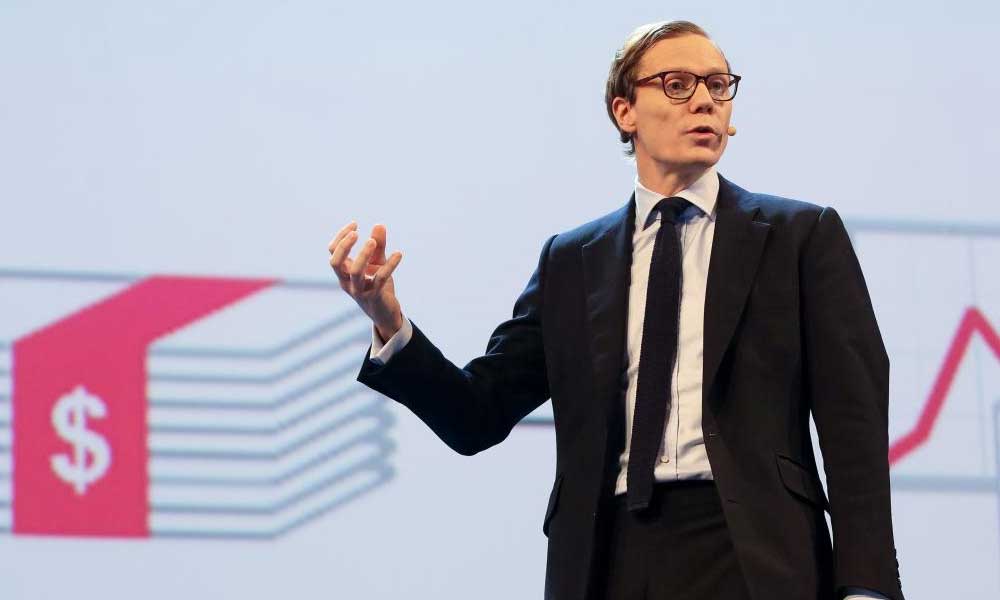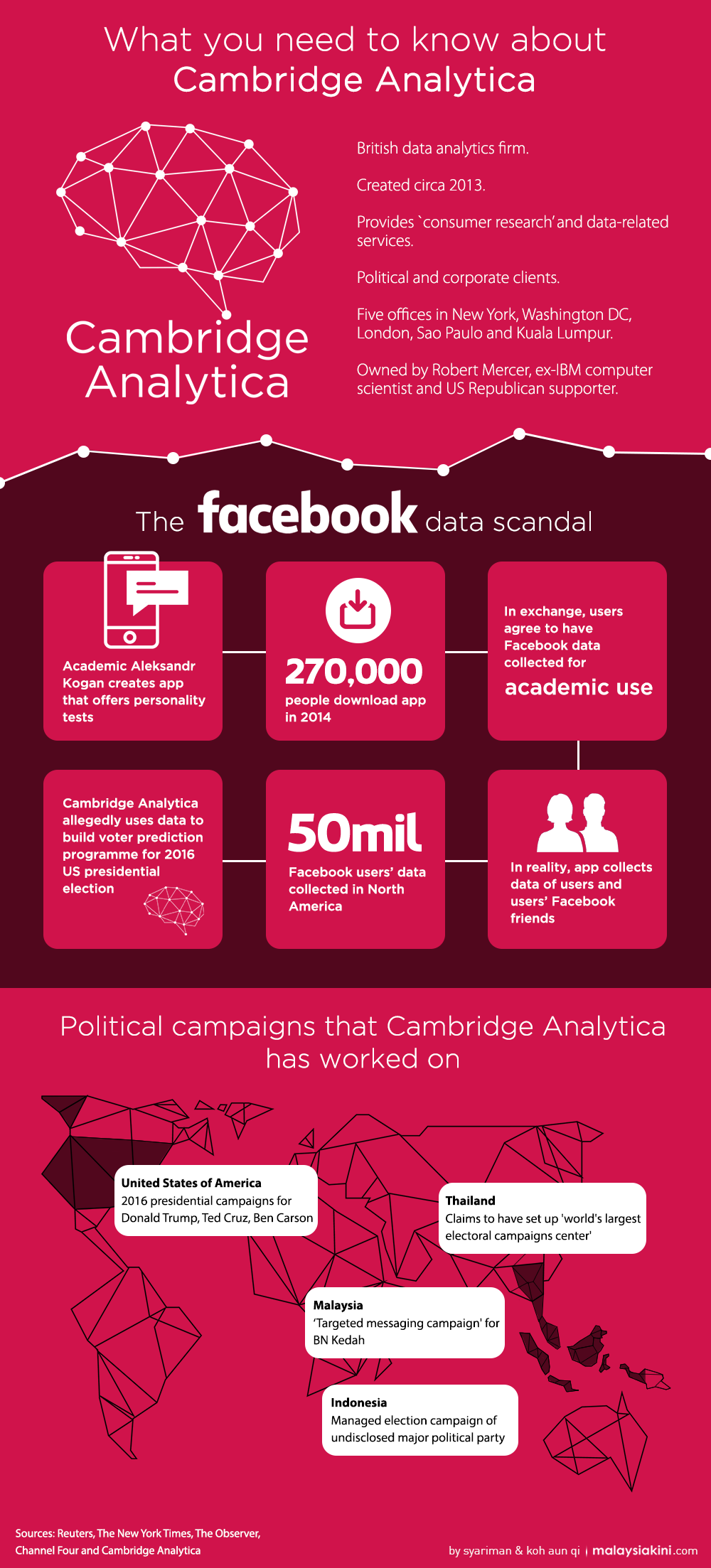The consultancy at the centre of a storm over Facebook data greatly exaggerated its role in Donald Trump’s 2016 US presidential victory, and would not have been able to sway an election result, the academic who provided the data said.
Psychologist Aleksandr Kogan also told the BBC in an interview broadcast on Wednesday that he was being made a scapegoat by Facebook and Cambridge Analytica, a British-based company hired by Trump for his election campaign.
Facebook has been rocked this week by a whistleblower who said that CA had improperly accessed information on millions of Facebook users to build detailed profiles on American voters.
The revelation has knocked nearly US$50 billion off Facebook’s stock market value in two days and hit the shares of Twitter and Snap over fears that a failure by big tech firms to protect personal data could deter advertisers and users and invite tougher regulation.
Facebook and CA have both blamed Kogan, an academic at Cambridge University who gathered the data by running a survey app on Facebook.
Many election campaign groups across the globe gather data on their electorates, hoping to target swing voters who might be sympathetic to their message.

However, Kogan said the services provided by the UK political consultancy had been greatly exaggerated.
“I think what CA has tried to sell is magic, and they’ve made claims that this is incredibly accurate and it tells you everything there is to tell about you. But I think the reality is it’s not that,” he said.
Arron Banks, who campaigned for Britain to leave the European Union in a 2016 referendum, also questioned the value of psychologically-based data.
Banks told Reuters that CA had unsuccessfully pitched for work with his Leave.eu campaign group.
“I don’t think they have this magical system that they say they have. I think they are nothing more than a company that places Facebook ads and shrouds in a sort of mystery,” he said.
Kogan’s smartphone application, “thisisyourdigitallife,” offered a personality prediction and billed itself on Facebook as “a research app used by psychologists”.
Facebook says Kogan then violated its policies by passing the data to CA for commercial use, saying on Friday he “lied to us”. CA said it destroyed the data once it realised the information did not adhere to data protection rules.
Kogan said the events of the last week had been a “total shell shock”.
“My view is that I’m being basically used as a scapegoat by both Facebook and CA,” he said.
We thought we were doing something that was really normal and we were assured by CA that everything was perfectly legal and within the limits of the terms of service.”
CA has denied various allegations made about its business practices in recent media reports.
British Prime Minister Theresa May told parliament she backed an investigation into CA, while a German government spokesman said that using data from 50 million Facebook users for political purposes would be unacceptable.
In Europe the tax affairs of tech giants have also become a hot political issue. On Wednesday the European Commission proposed rules to make digital companies pay their fair share of tax, with the likes of Facebook, Google and Amazon set to foot a large chunk of the bill.
Personality test
Alexander Nix (photo), the head of CA, said in a secretly recorded video broadcast on Tuesday that his company had played a decisive role in Trump’s election victory.

“We did all the research. We did all the data. We did all the analytics. We did all the targeting. We ran all the digital campaign and our data informed their strategy,” Nix told an undercover reporter working for Britain’s Channel 4 News.
Nix was suspended by the company shortly before the video was broadcast.
Kogan said he had gathered the data in 2014 because he wanted to model human behavior through social media. He was then approached by CA who provided the legal advice around the use of the data, he added.
Around 270,000 people downloaded the app, Facebook said. The app scored the results of each quiz and gathered up data from test-takers’ Facebook accounts. However, it also pulled down the data of their Facebook friends, vastly increasing the size of the sample.
Kogan put the number of app users as closer to 200,000.
The researcher said, in total, he passed the data of around 30 million American Facebook users to SCL, a government and military contractor that is an affiliate of CA.
Media reports have put the total number of Facebook profiles collected at around 50 million users.
Kogan said it was possible it was used in the US presidential election campaign but he did not have any knowledge of that. Asked by the BBC if he was willing to cooperate with lawmakers investigating the case, he said “absolutely”.
“I think there’s a really big question here in terms of how do social media platforms actually use everybody’s data,” he said.
US and European lawmakers have demanded an explanation of how CA gained access to user data in 2014 and why Facebook failed to inform its users.
- Reuters

READ MORE
Mukhriz slams 'misleading' PMO, says diverting from 'illegal tactics'
PMO claims Cambridge Analytica reported directly to Mukhriz
Granny’s blood pressure rises due to CA controversy
Harapan MPs: BN-CA link reeks of ‘foreign interference’
Cambridge Analytica - Muhyiddin in the dark, says Najib does things on his own
Mukhriz pleads ignorance on Cambridge Analytica’s role in Kedah
Did you manipulate GE13, Bersatu’s Wan Saiful asks Najib
‘Sex, lies and bribes’ - Trump’s election consultants admit to working in M’sia
Cambridge Analytica denies entrapping, says ‘grossly misrepresented’
Suspended Cambridge Analytica boss boasts of influencing US polls
Facebook hires independent auditors to probe alleged data breach
UK authorities seek warrant to search Cambridge Analytica offices
Factbox: What is Cambridge Analytica and what did it do?

